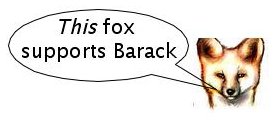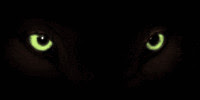How can you have a day without a night?
The morning’s rain had fallen and the early afternoon sun was resolutely returning it to the clear sky. A brilliant blue butterfly flopped through the open window, casting off its shadow as it crossed the room’s threshold. It landed on a weighty manuscript, open at the middle. The paper was thick, textured and faded in a way suggesting great age. The script was elegant and measured, yet even a fluent reader of spanish might have had difficulty deciphering its context from the extravagant loops and tangents that overflowed into adjacent words and lines. Throughout the text words and phrases were crossed out, replaced, in the same handwriting, between the lines and in the margins by alternative expressions, making it even harder to read. The original text was faded but distinct, while the marginalia were various darker shades of black, sometimes dark blue. It seemed it had been revised on many occasions during its lifetime.
The manuscript, on which the butterfly now rested, flexing its azure wings, sat in the middle of a large oak table, otherwise unadorned save for a black box sitting in the corner. Lying in front of the box was a small stack of photographs. The table was of a kind oine might describe as a kitchen table, were it not in a room that was clearly not a kitchen. On two other tables, and on the shelves that lined all the walls of the small room, were sprawled and stacked all kinds of books, scrolls, folios, codices and manuscripts. Many were bound in fine leather, red, gold and black, many were bound by vellum or parchment, while many were unbound, tied with red or gold cord, as the one on the table. Most were clearly of some antiquity, yet despite the absence of any protection from the elements – the window had been open, as usual, during the morning’s downpour and the late afternoon sun would soon be streaming into the room – they were exquisitely preserved.
Above the open the manuscript a white Montblanc pen, embellished only by a black opal at its apex, hung suspended in the air, seemingly poised for writing. The butterfly took wing as the pen arced toward the page and, as it did, its support, hitherto unseen, became starkly visible. The hand was thin, its skin deeply tanned, tight to the bone. Well manicured nails glinted in the dark of the room, as if reflecting light that was not there, and tiny hairs on the hand’s surface illuminated themselves with crystal clarity. A sleeve of white, sheer silk hung loose from the arm, brushing the paper’s surface as the pen slowly drew a line through ‘abrazo chozas‘, replacing it with ‘incinero hogares‘ in the tight space above. Through the arm and the hand, the page’s text was quite clearly readable.
The arm retreated, the pen resumed its point of suspension and a red light blinked on the black box. A photograph slid out from a slit in the box and flopped onto the stack. It was of a town square, in the background a grand hotel in front of which huddled small groups of people talking, taking photos. In the center, apparently the focus of the photo was a man in his forties wearing a white linen shirt, black pants and sandals, walking across the square away from the hotel. His attention seemed drawn to a spot on his left shoulder.
As Kit walked across Plaza de Santa Ana, the water that had hung in the air all day, casting a heavy shroud over the city, started to coalesce and fall from the sky in large drops. The few tourists dotting the small square snapped their cameras and cell phones at the grand hotel where the bullfighters stayed, the old theater where once-great actors took the stage and the cervezeria where a great writer once drank. Pausing at the signs of rain, they looked skywards and deliberated whether to join Hemingway's ghost or retire to their hotels for shelter. Kit headed for a once familiar haunt.
He placed his book on the metallic bar and ordered a drink. The barman placed a green bottle and a glass in front of him and resumed his one-sided conversation with the other customer, sitting at the other end of the bar. The topic of conversation - monologue, really - was the big game coming up on Saturday. It was not so much about who would win, but about how many goals Athletico would crush Real by and who would score them. Times had certainly changed, thought Kit. Real's domination of cross-town Athletico, and every other team in La Liga, had surely been perpetual. As the barman revelled in this change in fottballing fortunes, the other patron stared at the ice melting, slowly yellowing the last drops of liquid in his glass, as beads of sweat dripped slowly down his face. His name was Arturo and he used to have season tickets at the Bernebeu, Real’s own theater of dreams. Over the years he had negotiated himself into one of the best seats in the stadium, just in front of the president's box. Other regulars in this section of the stadium would greet him and ask his opinion of the latest line up or Real's game plan. During a Champions League game against Inter Milan, Arturo was so impressed by Inter's young, speedy striker that he turned and yelled towards the president, "This guy's got some talent, Senor Presidente, you should buy him!" Sure enough, next season the prodigy was suited in Real's famous white strip, scoring goals the likes of which hadn't been seen on the hallowed ground for many a year. Of course Arturo did not shirk the credit afforded him by his fellow Real fans and his reputation as a tactical visionary blossomed. On one occasion the legendary Raul, retired for some years and carrying a reputation rivalling that of Di Stefano before him, shouted out from quite a few rows away; "Hey Arturo, 4-4-2 or 4-5-1 against Depor next week?" "Even you fared better with a partner, Maestro - 4-4-2, of course!" Arturo had replied, bringing smiles and nods of approval all round. It seemed he had the ear of the entire Real family. But now Arturo went to games no longer and no one listened to him. Now he listened, or feigned listening, to his barman's tabloid sports column regurgitation. And that was just fine with him, as long as he continued to serve him.
Kit looked around the small bar. It was much as he remembered from his previous trip to Madrid, which surprised him, having seen it before only from the depths of a mojito-fuelled haze in the midst of a crowd of late night revellers. Beautifully tiled walls, scenes of bullfighters majestically dispatching their ferocious, unnaturally large quarry in shades of ochre and red, were trimmed ornately by brilliant blue and yellow patterned tiles. Wooden stairs led up to an even smaller room, served by a bar about the size of a subway ticket kiosk where he had spent many a night-time hour before.
Today he had taken the afternoon off from the conference he was attending "At the Crossroads of Molecular Biology and Psychiatry: How do we pave the road ahead?". The afternoon session promised a discussion of signaling pathway and gene expression aberrations in schizophrenia. But two and a half days spent in the company of the "elite" of the emerging molecular psychiatry field had exposed him to more than enough delusional grandeur and paranoia. Instead he'd walked to the Prado, not for the full tour but to revisit some of the highlights of his previous visit to the museum, some five years ago. Lingering in front of the Garden Of Earthly Delights any remaining feelings of guilt about skipping the afternoon's session soon disappeared. The depiction of the garden of Eden on one side of the tryptich, hell on the other and in the middle some kind of terrestial mish-mash of the two, the corruption of human desires and needs born of original sin, left him in no doubt that Bosch, some five hundred years previous, was as familiar with the workings of the schizophrenic mind as his esteemed colleagues. Leaving the museum he had wandered the narrow, grey streets, now and then coming across a tapas bar or cerveceria he remembered from before. He would have stopped for his favorite pimientos de Padron in one of them had they not been closed. Though siesta was no longer widely practiced, its influence persisted, the city dragging its past through the current.
Lighting a cigarette, Kit picked up his paperback and continued reading. Benny Profane was still hunting alligators in the New York sewer system. Kit smiled at that.
“Uno ottro Perrier?” asked the barman, barely disguising his disapproval.
“No ….. gracias. Una Chivas Regal, por favor.” replied Kit.
“Ah, yse”, the barman’s demeanor visibly improving, “With ice?”
“Si.” replied Kit in his best spanish.
Kit put out his cigarette, closed the book, picked up the glass and walked over to the other end of the bar. He placed the glass in front of Arturo, nudging aside his empty one and whispered “Viva Real!”. Arturo looked up, startled. A flicker of recognition passed between their eyes, though they’d clearly never met before, a fleeting glimmer of understanding lightening Arturo’s face before the shadow cast itself again.
Outside people were emerging from their temporary shelters as the downpour subsided. Kit turned to the right and started making his way towards the heart of Madrid, the center of Spain.
He put down the pen and closed the manuscript. The front page bore the work’s title and underneath a sketch of a man’s arm upon which rested a collared falcon. Circling this were the words ‘EX TENEBRIS SPERO LUCEM’.
A bright blue paper origami crane now sat on the black box, from which another photo slid. The man in the white shirt and black pants was walking away from the camera. In the background loomed the fountain and the crowds of Puerta del Sol. He picked up the photo and his thin lips materialized, twisting into a smile of recognition, and whispered “Take care, Dr. Thompson, not to fly too close”
Saturday, August 12, 2006
Subscribe to:
Posts (Atom)




